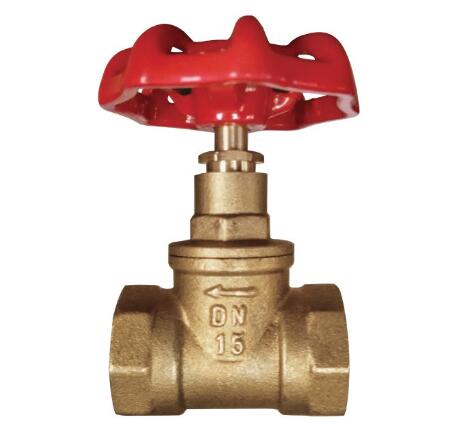Brass ball valves are essential components in many plumbing and industrial systems. Their ability to control the flow of liquids or gases efficiently and reliably makes them a popular choice across a wide range of industries. In this article, we'll explore the mechanics behind brass ball valves, how they operate, and why they're so widely used.

A brass ball valve is a type of quarter-turn valve made primarily from brass, a durable metal alloy consisting of copper and zinc. The valve features a spherical disc (the "ball") with a hole in the middle that controls the flow of fluids or gases. When the valve is turned 90 degrees, the hole aligns with the flow path, allowing full flow. Conversely, when the valve is turned back, the hole rotates perpendicular to the flow path, stopping the fluid or gas flow entirely.
A brass ball valve consists of several crucial components, each of which plays an important role in its operation:
1. Valve body: This is the main structure that houses all the other parts.
2. Ball: The spherical element inside the valve with a hole that regulates flow.
3. Seats: These are located on either side of the ball to provide a tight seal when the valve is closed.
4. Stem: The stem connects the ball to the handle or lever, allowing it to rotate.
5. Handle or lever: The handle is the part that the user manipulates to open or close the valve.
These components work together to ensure efficient, low-maintenance operation, allowing the valve to control flow with minimal leakage.
The operation of a brass ball valve is simple yet highly effective. By rotating the valve's handle or lever 90 degrees, the ball inside the valve turns as well. The position of the ball's hole determines whether the valve is open or closed:
- Open position: When the hole in the ball is aligned with the flow path, liquids or gases can pass through unimpeded. This allows for full flow with minimal pressure drop.
- Closed position: When the ball is rotated so that the hole is perpendicular to the flow path, the fluid or gas is blocked, effectively shutting off the flow.
The smooth, quick rotation and straightforward mechanism make brass ball valves ideal for a wide range of applications, especially where fast shutoff or flow control is needed.
Brass ball valves offer several advantages that make them suitable for both residential and industrial use:
1. Durability: Brass is corrosion-resistant and capable of withstanding harsh environments, making it ideal for water, gas, and oil applications.
2. Ease of operation: The quarter-turn mechanism allows for quick, efficient control of the valve.
3. Minimal leakage: The tight seal provided by the ball and seats ensures minimal leakage, even after repeated use.
4. Versatility: Brass ball valves are available in various sizes and configurations, making them suitable for different types of systems.
5. Cost-effective: Compared to valves made from other materials like stainless steel, brass ball valves are more affordable while still offering excellent performance.
Brass ball valves are used in a variety of applications due to their versatility and reliability. Some common uses include:
- Plumbing systems: They are widely used in residential and commercial plumbing systems for controlling water flow.
- HVAC systems: In heating, ventilation, and air conditioning (HVAC) systems, brass ball valves regulate gas or fluid flow efficiently.
- Industrial applications: Many industries, including oil and gas, chemical processing, and manufacturing, rely on brass ball valves for controlling the flow of different media.
- Agriculture: In irrigation systems, brass ball valves help regulate the flow of water, ensuring efficient water management.
Brass ball valves require minimal maintenance due to their simple design. However, periodic inspection is recommended to ensure they continue to function correctly. Over time, the seats may wear out and require replacement, but this is a relatively straightforward procedure. With proper care, brass ball valves can last for many years, even in demanding environments.
Brass ball valves are an integral part of various fluid and gas control systems, offering durability, efficiency, and ease of operation. Their robust design, coupled with the simplicity of their quarter-turn mechanism, makes them ideal for a wide range of applications, from household plumbing to industrial systems. If you're looking for a reliable brass ball valve supplier, or if you need further assistance with your plumbing or industrial projects, feel free to contact us for expert guidance and support.
Previous: Where are Brass Ball Valves Used?